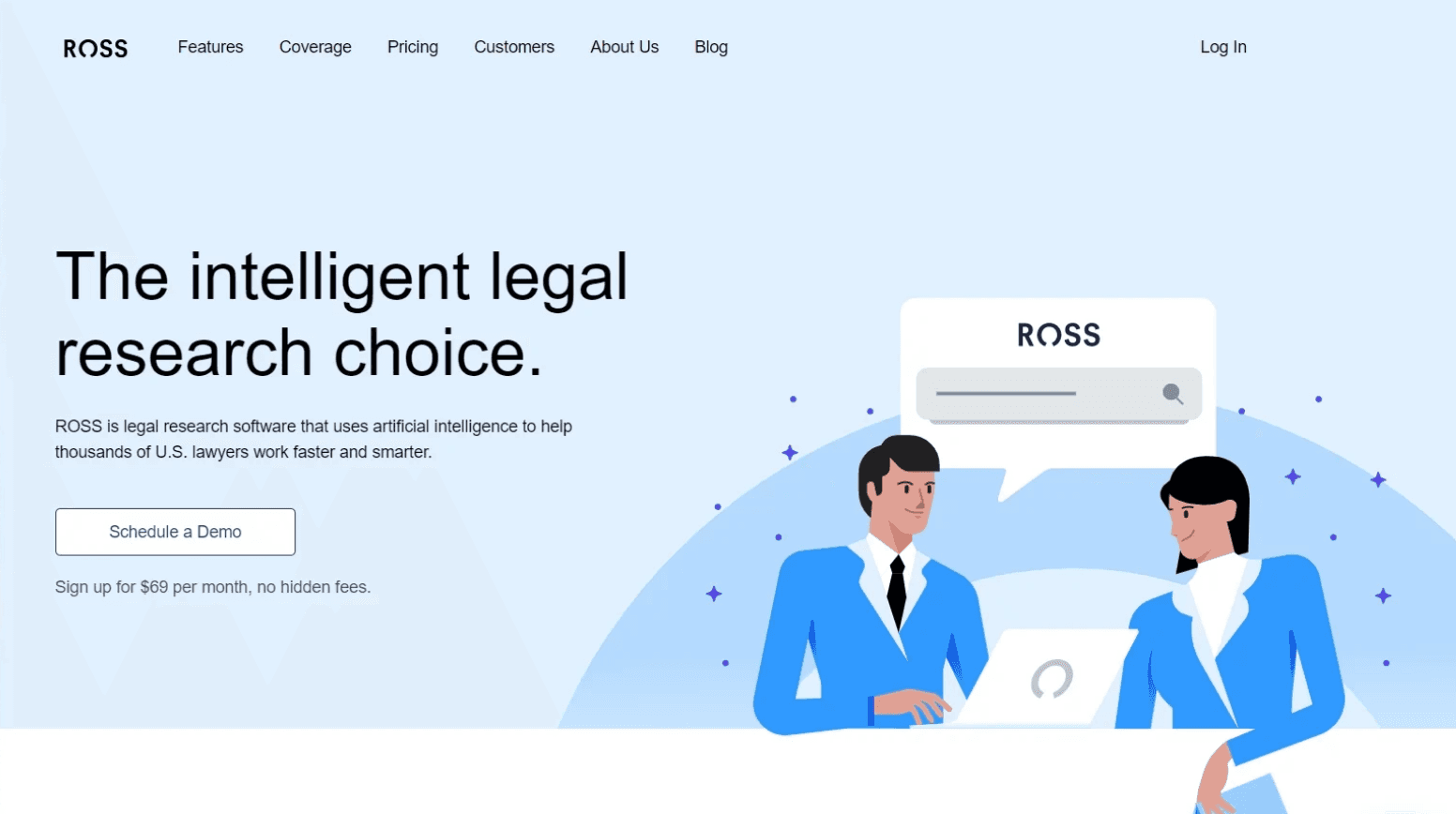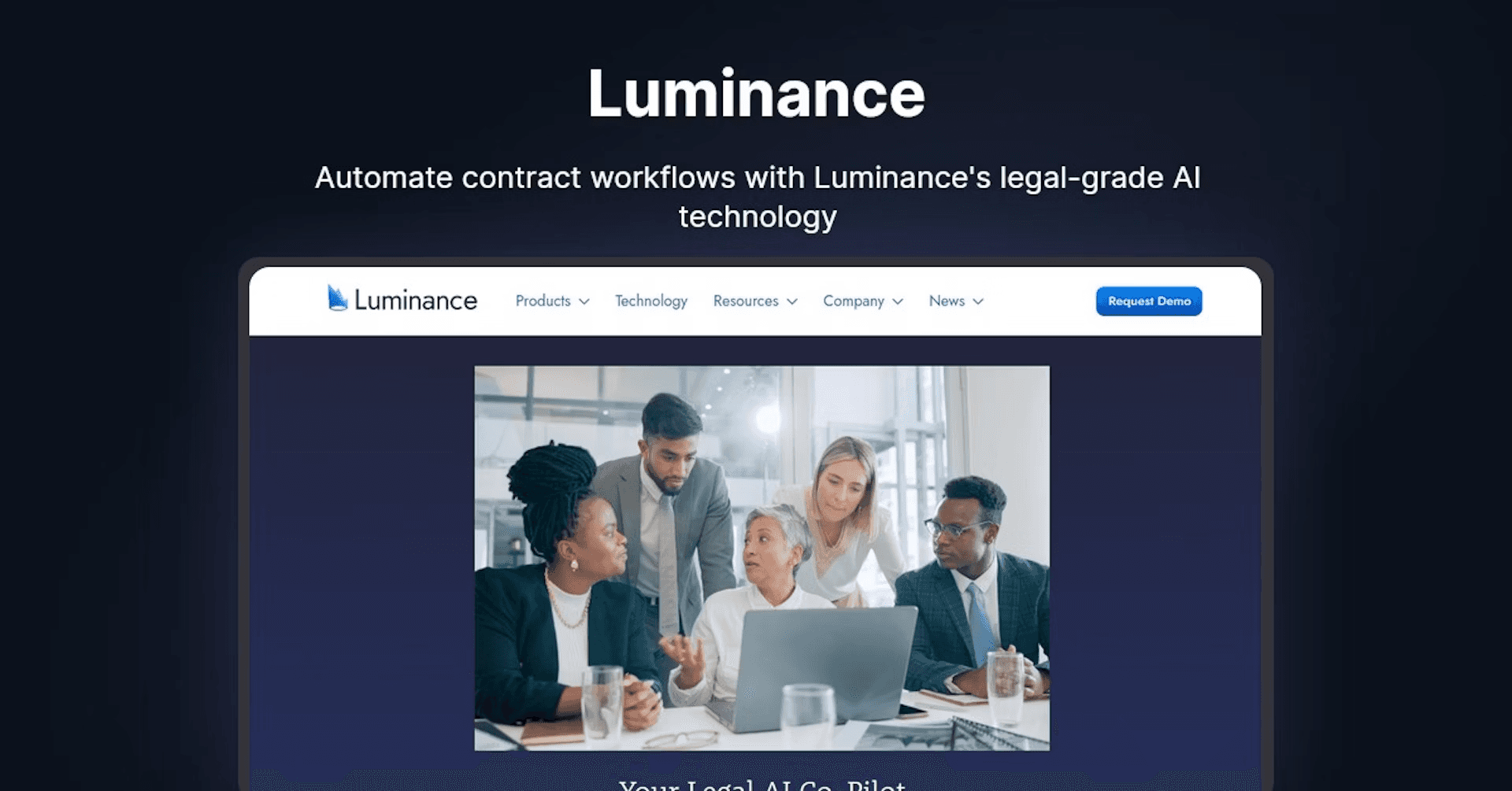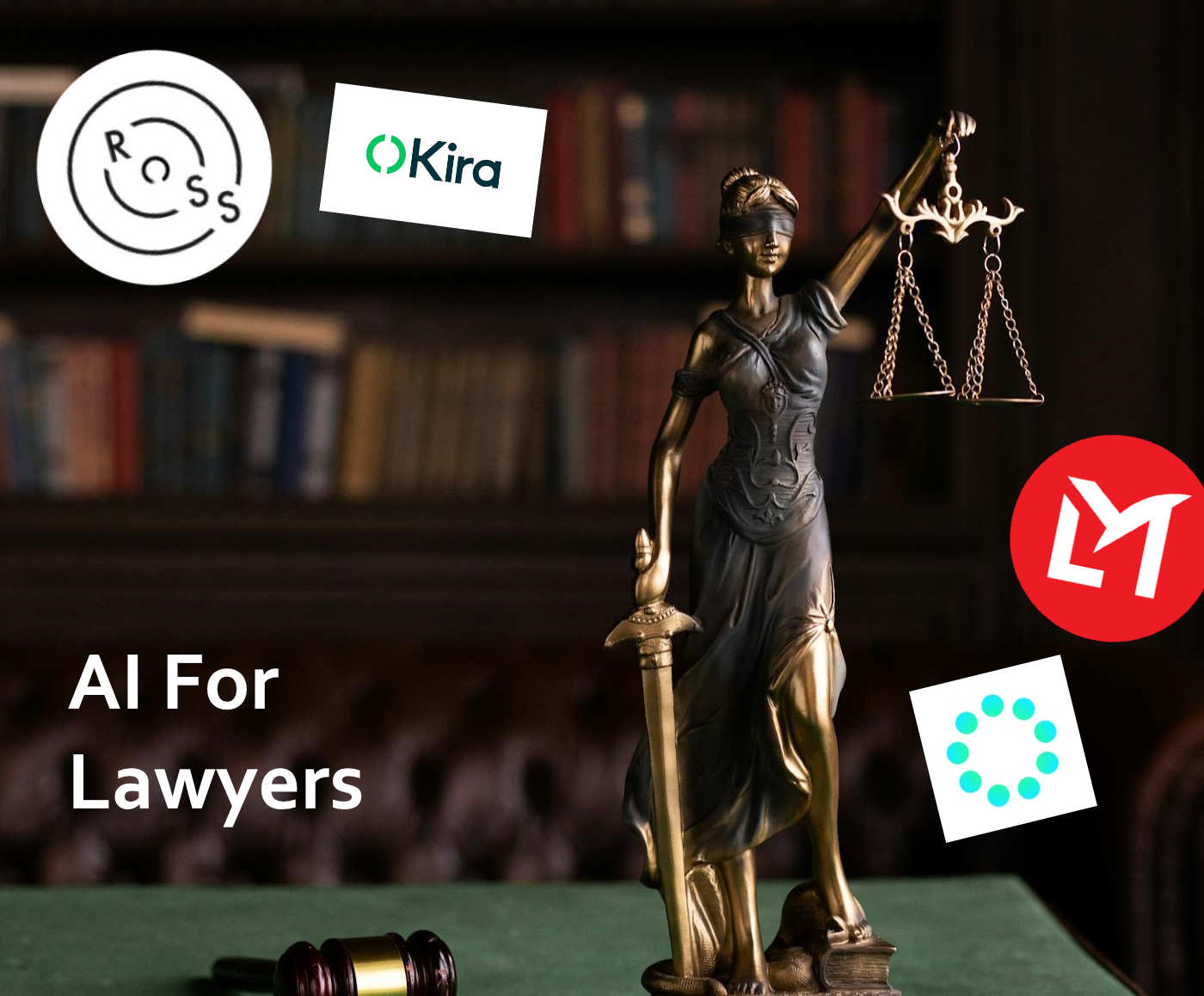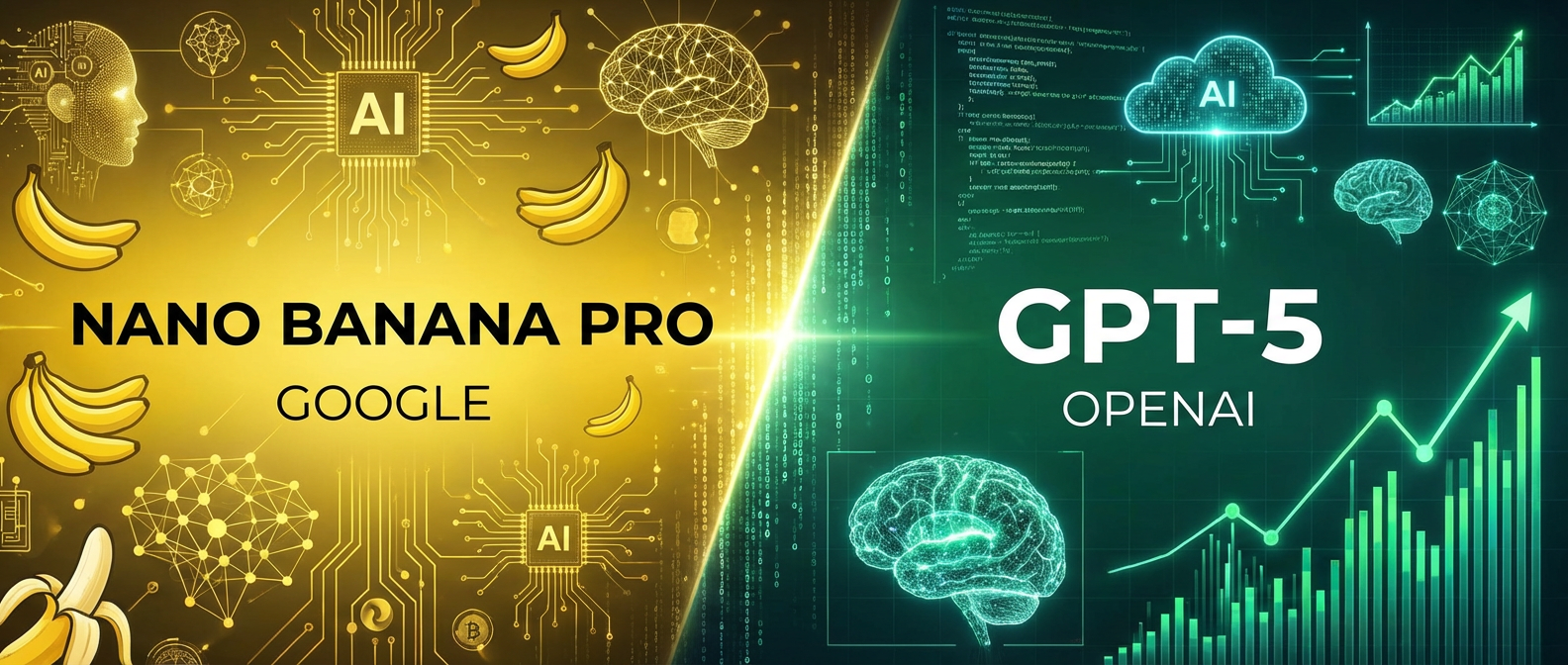Hello, I am Artem and I test dozens of AI tools for professionals, to help you do your tasks in more efficient ways. Today I want to talk about how AI is changing the way lawyers work and what tools lawyers use to get more done in less time. The legal world moves fast these days, AI tools are helping lawyers keep up.
How AI is Changing Legal Work
You've probably noticed AI popping up everywhere. The legal field isn't different. AI can review documents much faster than humans. It can even guess how cases might turn out. This means lawyers can spend less time on boring tasks and more time on the important stuff - like strategy and client work.
Why Lawyers Should Care About AI
Using AI is in no way a fancy trend, knowing how to use it becomes almost a required skill and something that is rather expected from you. As of now, it actually helps lawyers in multiple real ways:
Saves Time: No more spending hours on all those repetitive tasks, AI chatbot will do it for you.
Works Faster: Even basic AI tools can speed up research and document work by a lot.
Makes Fewer Mistakes: AI doesn't get tired or distracted like humans do when reviewing documents.
Cuts Costs: When AI does the routine work, you need fewer hours of expensive lawyer time.
Spots Patterns: AI can look through massive amounts of data and find things you might miss.
The Privacy Question
Here's something not to be forgotten. Privacy matters a lot when you're dealing with legal stuff and most good AI tools have decent security. Still, you need to check. Read their privacy policies (I know, boring, but important). Make sure they encrypt your data. For sensitive legal work, only use tools that take confidentiality seriously. Don't just trust the marketing - actually look at how they handle your information

Top AI Tools for Lawyers
Here are some of the best AI tools that already help lawyers all over the world to improve their practice and get more done:
Writingmate: A Comprehensive AI Solution
For those looking to take advantage of multiple AI models inside a single platform, there is Writingmate. Writingmate.ai chatbot supports over 30 AI models, including top models like GPT-4, Claude 4, Mistral, and LLama 4 Scout and Maverick. Here are some key features of Writingmate:
Document Upload: Users can upload any documents to refer to them during interactions.
Web Access: Writingmate provides access to real-time, up-to-date information from the internet.
Summarization and Simplification: The tool can summarize and simplify long, difficult documents, making them easier to understand.
Custom Personal Assistants: Users can create personalized assistants with specific inputs and instructions fo their exact tasks and needs. For example, there are Student Assistant, SEO Assistant, AI Detector and more, and you can easily make your own Lawyer assistant. To do this, you should write what do you want it to do and know from the start.
Compare AI models live, to know which one suits your set of tasks the best.
Privacy and Security: Writingmate makes all interactions are private and secure. There is even no need to bring API keys to use all of this all-in-one AI tool features.

In my experience, this tool is truly comprehensive. You see, it combines the best features of all the top models. It also adds something unique. It allows legal professionals to handle many tasks well or better. That way, you can do research and review documents faster. And, AI tools can also generate insights and simplify complex info. And a one important disclaimer: fact-check and look through, do not let AI only work with important documents. Human eye and human caution is important as well.
Try this all-in-one AI tool here, for free: Writingmate
Legal Research with ROSS Intelligence
ROSS Intelligence uses AI to streamline legal research. It allows lawyers to find relevant case law and statutes quickly, saving valuable time. ROSS’s AI can understand complex legal queries and provide precise answers, making it an indispensable tool for any law firm. There were rumors that ROSS will shut down, but as of now, everything seems to work smoothly.
Use Cases for ROSS Intelligence
Case Preparation: Lawyers can use ROSS to quickly find precedents and relevant case law, which is essential for building strong cases.
Legal Opinions: By using ROSS, legal professionals can generate comprehensive legal opinions backed by accurate and relevant legal research.

Document Review with Luminance
Luminance is one of the best niche AI tools for document review. It uses machine learning to read legal documents. It understands them, finding key information and risks. This tool is very useful for due diligence, contract analysis, and compliance checks. It ensures thorough and quick document review.
Use Cases for Luminance
Due Dilligence: Luminance can review a lot of documents in mergers and acquisitions. It finds risks and ensures compliance.
Contract Analysis: Lawyers can use Luminance to pull out critical clauses from contracts. This makes reviews and negotiations easier.
I have also written an entire article on the best AI tools for document review in 2025. Read it here: Best AI Document Review Tools – Compare 7 Top Apps

Contract Management with Kira Systems
Kira Systems uses AI to extract and analyze key clauses from contracts. It helps lawyers identify important information and potential risks quickly. Kira's machine learning improves over time. This makes it quite a reliable tool for managing and analyzing contracts.
Use Cases for Kira Systems
Risk Management: Kira helps identify risky clauses in contracts, allowing lawyers to address potential issues proactively.
Summarizing long documents: Yes, Kira can summarize long contracts. This makes it easier for lawyers to grasp the key terms and conditions. They can do so without missing any critical details.
And if you want to know how to use any AI tool better as a lawyer, watch this recent video, it explains how to use even such tools as GPT to your advantage:
Legal Analytics with Lex Machina
Lex Machina provides legal analytics that helps lawyers predict the outcomes of litigation. By analyzing past cases, Lex Machina offers insights into how judges and opponents may behave. This lets lawyers strategize better. This tool is invaluable for anyone involved in litigation.
Use Cases for Lex Machina
Predicting Case Outcomes: Lex Machina analyzes historical case data to help lawyers understand the likely outcomes of their cases. This includes identifying trends in judicial decisions and the behavior of opposing counsel.
Strategic Planning: By understanding how a particular judge has ruled on similar cases, lawyers can tailor their arguments and strategies accordingly. For example, if a judge has a history of favoring certain types of contracts, lawyers can emphasize that in their case.
Risk Assessment: Lex Machina helps in assessing the risks associated with litigation by providing data on the success rates of similar cases. This information can be crucial in deciding whether to settle a case or proceed to trial.
Client Counseling: Lawyers can use Lex Machina's insights to show clients their chances in court. This helps clients make informed choices about litigation.
Lex Machina also offers legal analysis for products and other powerful features. Where to find it? Link: https://lexmachina.com/

Automating Legal Workflows with Neota Logic
Neota Logic automates complex legal workflows. It also lets lawyers to make applications that can automate processes such as compliance checks, legal advice, and document generation. This tool helps firms improve efficiency and consistency in their legal operations.
Use Cases for Neota Logic
Compliance Checks: Neota Logic can automate the process of checking for regulatory compliance, ensuring that all necessary legal standards are met. For example, a law firm can use Neota Logic to build an application that checks contracts for compliance with GDPR regulations.
Automated Legal Advice: Lawyers can create applications that provide automated legal advice based on predefined rules and logic. For instance, a firm can make an app. It gives preliminary employment law advice to clients. This reduces the need for initial consultations.
Document Generation: Neota Logic can automate the creation of legal documents. For example, a law firm can use it to make standard contracts, letters, and other documents. They do this by putting client-specific information into the system. Then, the system makes a tailored document.
Neota actually makes tutorials on different use cases. This one explains how to make insurance claims automation workflow.
ChatGPT
ChatGPT (My Daily Driver, but…)
ChatGPT (most often, inside Writingmate) does about 80% of my legal and writing tasks now. It's excellent for brainstorming and structuring documents, though it can get overly formal sometimes (you can prompt it to tone down the legalese). The trick is giving it clear instructions about tone and depth.
What lawyers use GPT models for:
Drafting initial legal briefs and motions
Rewriting complex legal language into clearer terms
Creating client-specific contract clauses
Brainstorming legal arguments and strategies
Summarizing case law and statutes
Let me think of an example prompt for lawyer to use:
"Draft a motion for [specific legal issue] in [jurisdiction]. Focus on [key legal precedent]. My case facts: [2-3 main points]. Keep it under 500 words, professional but accessible tone, emphasize [specific legal argument]."
The ChatGPT Problem: Regular ChatGPT has annoying usage limits that hit right when you need it most. Plus, it's expensive if you're doing serious legal work daily.

Better Solution: I use GPT-4o, Claude 4 Sonnet and OpenAI o3-mini through WritingMate.ai, to write, code, search the web and even chat with files (yes, search inside of and make changes to documents with AI). It's cheaper and has way fewer limits and lets you use over a 100 of best AI models and tools. You can start for free or pay just $9 per month for Pro tier, which is more affordable than GPT on its own or Claude AI is. It also includes useful features like AI agents (specialized assistants for different legal tasks) and prompt libraries (so you don't have to retype your prompts and can enhance them easily).
The secret is also being specific with your prompts when making law-related tasks with AI. Generic legal prompts create generic, unhelpful responses.
Summing Up
AI tools are changing the legal industry fast. It offers unprecedented efficiency & accuracy. They are now not just beneficial, but essential for modern law firms or single professionals. They can help with legal research, contract management, checking information, monotonous work and even decision-making (though you have to be careful with that!). If you staying informed and use the most suiting AI tools for lawyers, you can improve your practice a lot. You, as a lawyer, can also provide better service to clients and help more clients in general.
For more detailed articles on AI, visit our blog that we make with a love of technology, people, and their needs.
Written by
Artem Vysotsky
Ex-Staff Engineer at Meta. Building the technical foundation to make AI accessible to everyone.
Reviewed by
Sergey Vysotsky
Ex-Chief Editor / PM at Mosaic. Passionate about making AI accessible and affordable for everyone.



